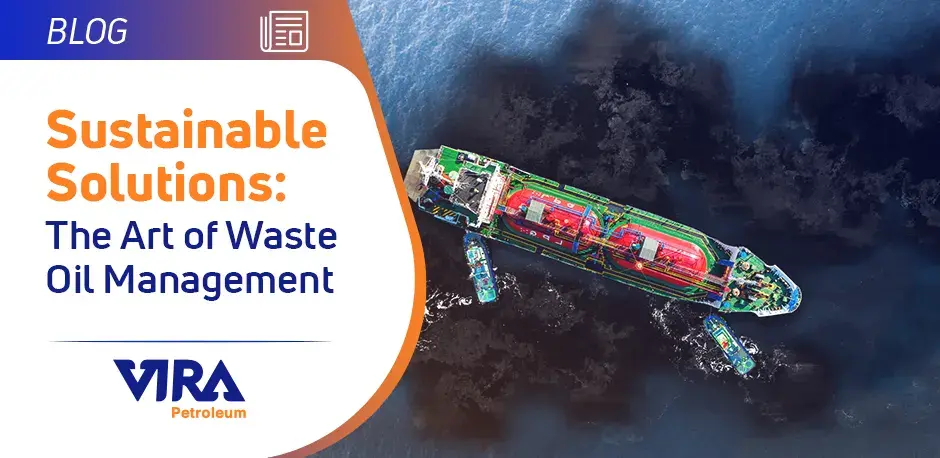Effective waste oil management is crucial for minimizing environmental pollution and health risks associated with improper disposal. Waste oil, derived from various sources such as automotive, industrial, and cooking oils, requires careful handling, storage, and disposal to prevent contamination and promote sustainability. In this article, we will explore the best practices for waste oil management, highlighting the importance of proper handling, safe storage, and appropriate disposal methods.
Order : recycled base oil
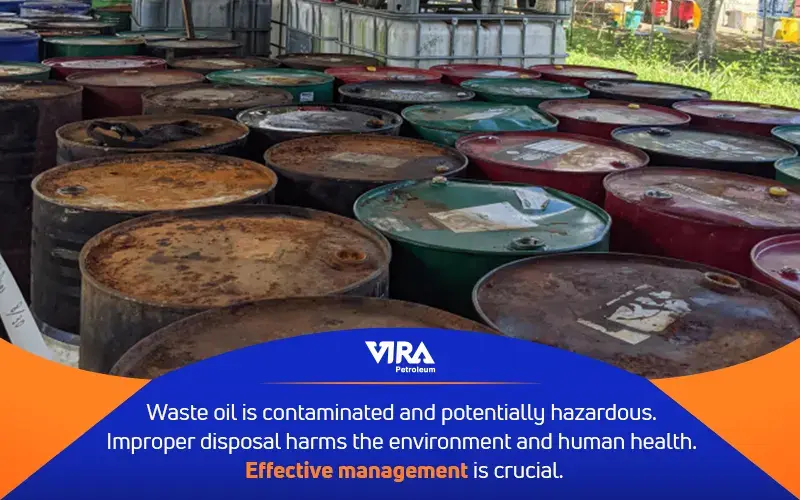
Understanding Waste Oil and its Impact
Waste oil refers to used or spent oil that can no longer perform its intended function. It contains impurities, such as dirt, metals, and chemical additives, making it potentially hazardous if mishandled. Improper disposal of waste oil can lead to soil and water pollution, endangering ecosystems and human health. Understanding the composition and potential contaminants in waste oil is essential for developing effective management strategies.
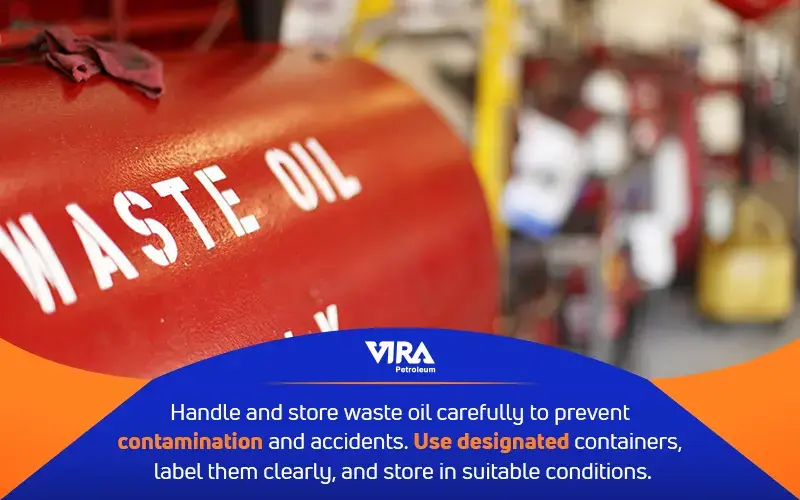
Importance of Proper Handling and Storage
Proper handling and storage of waste oil are critical to prevent leaks, spills, and contamination. When handling waste oil, it is important to use designated containers and equipment to avoid mixing it with other substances. Labeling the containers with clear identification and dates helps track the oil’s age and origin. Storing waste oil in appropriate containers, away from heat sources and direct sunlight, minimizes the risk of fire and degradation.
Read more : Waste Oil vs. Used Oil
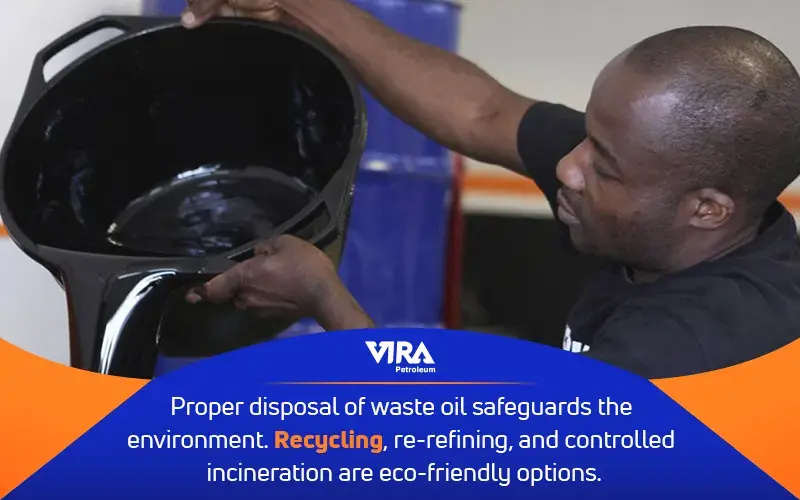
Safe Disposal Methods
Safe disposal of waste oil is essential to protect the environment and human health. Recycling is one of the most environmentally friendly options, as it allows waste oil to be processed into new products. Re-refining is another method that purifies waste oil, making it suitable for reuse. Incineration, under controlled conditions, can be used as a last resort when other options are not feasible. It is important to consult local regulations and utilize authorized waste oil disposal facilities to ensure compliance with environmental standards.
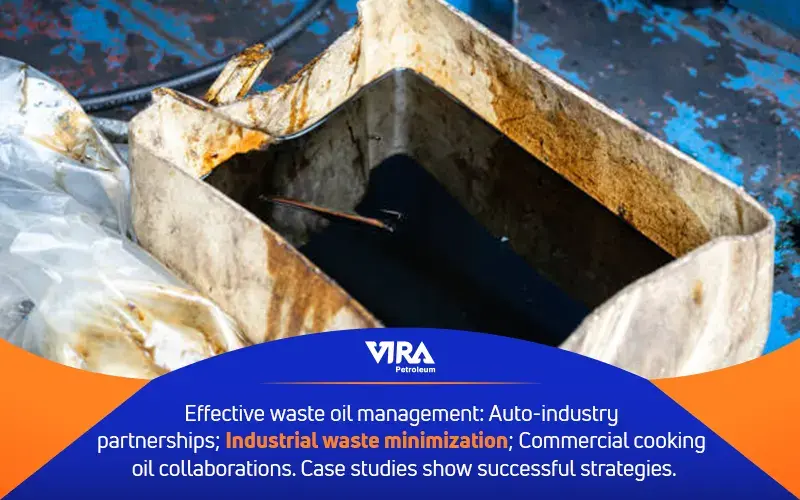
Waste Oil Management Strategies in Different Sectors
Effective waste oil management practices vary across different sectors. In the automotive industry, establishing partnerships with authorized recyclers and implementing oil collection programs can ensure proper disposal. Industrial sectors can benefit from implementing waste minimization programs, including oil reuse and recycling initiatives. Commercial establishments, such as restaurants, can promote responsible cooking oil disposal through partnerships with biodiesel producers. Case studies and examples from these sectors highlight successful waste oil management strategies.
Read more : ِDifferent Types of Waste Oil
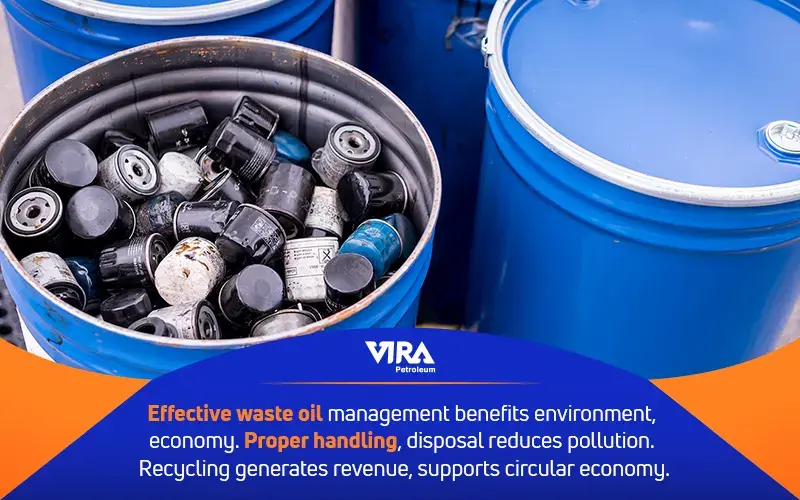
Environmental and Economic Benefits of Effective Waste Oil Management
Implementing effective waste oil management practices brings numerous environmental and economic benefits. Proper handling, storage, and disposal of waste oil contribute to reducing soil and water pollution, protecting ecosystems and public health. Additionally, recycling and re-refining waste oil can generate revenue and contribute to the circular economy. By embracing sustainable waste oil management, businesses can improve their environmental footprint and enhance their reputation as responsible corporate citizens.
Conclusion
Proper waste oil management is a critical component of environmental stewardship and sustainability. By adopting best practices for handling, storing, and disposing of waste oil, we can minimize pollution, protect ecosystems, and ensure a healthier future for generations to come. Implementing these strategies across various sectors and embracing the economic and environmental benefits of waste oil management will lead us towards a more sustainable and responsible approach to waste oil disposal. Let us commit to effective waste oil management for a cleaner and greener planet.
